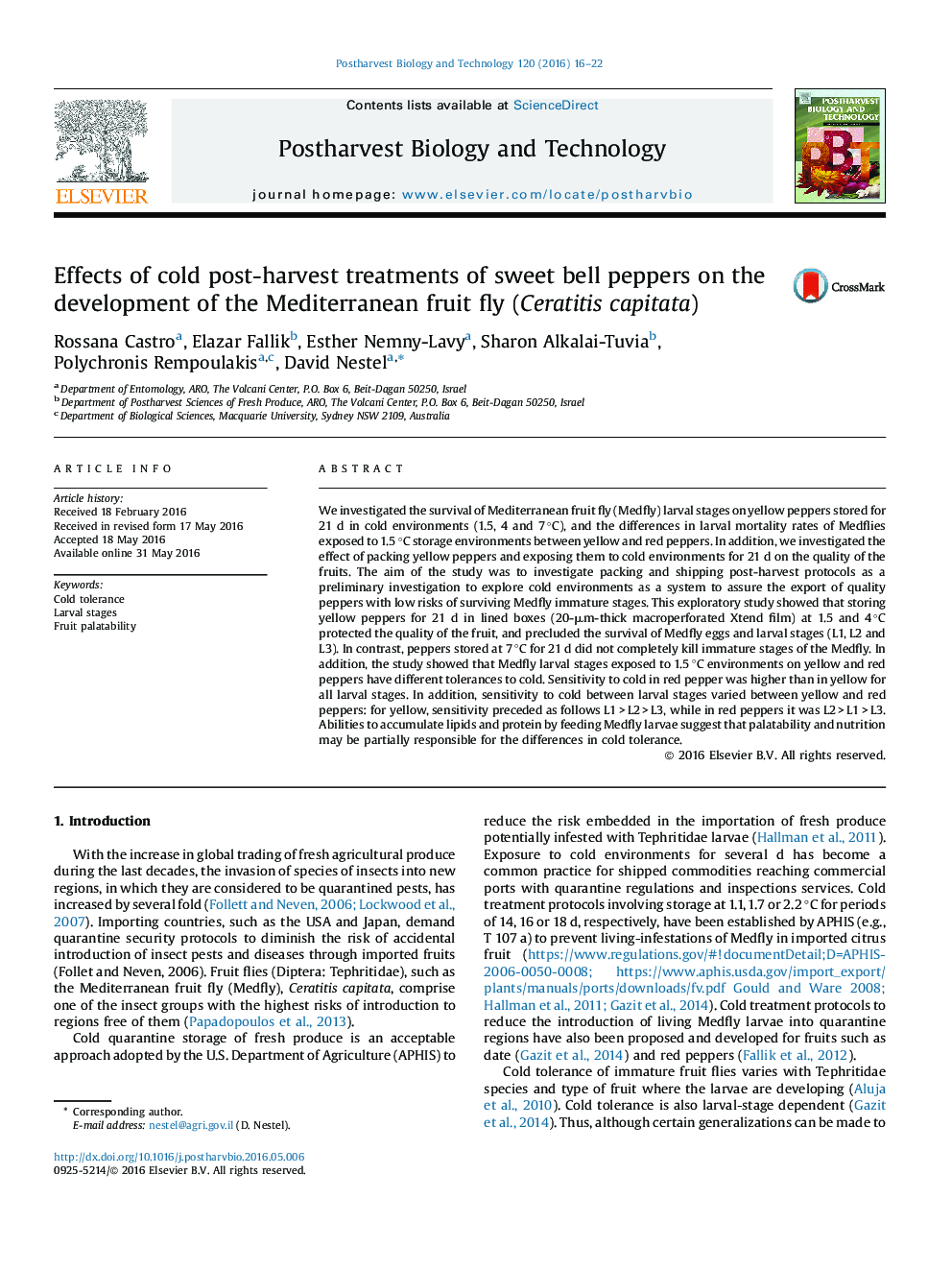| Article ID | Journal | Published Year | Pages | File Type |
|---|---|---|---|---|
| 4517722 | Postharvest Biology and Technology | 2016 | 7 Pages |
•Cold treatments (1.5 and 4 °C for 21 d) killed all Medfly larval stages in peppers.•Fruit palatability may explain differences in larval tolerance to cold.
We investigated the survival of Mediterranean fruit fly (Medfly) larval stages on yellow peppers stored for 21 d in cold environments (1.5, 4 and 7 °C), and the differences in larval mortality rates of Medflies exposed to 1.5 °C storage environments between yellow and red peppers. In addition, we investigated the effect of packing yellow peppers and exposing them to cold environments for 21 d on the quality of the fruits. The aim of the study was to investigate packing and shipping post-harvest protocols as a preliminary investigation to explore cold environments as a system to assure the export of quality peppers with low risks of surviving Medfly immature stages. This exploratory study showed that storing yellow peppers for 21 d in lined boxes (20-μm-thick macroperforated Xtend film) at 1.5 and 4 °C protected the quality of the fruit, and precluded the survival of Medfly eggs and larval stages (L1, L2 and L3). In contrast, peppers stored at 7 °C for 21 d did not completely kill immature stages of the Medfly. In addition, the study showed that Medfly larval stages exposed to 1.5 °C environments on yellow and red peppers have different tolerances to cold. Sensitivity to cold in red pepper was higher than in yellow for all larval stages. In addition, sensitivity to cold between larval stages varied between yellow and red peppers: for yellow, sensitivity preceded as follows L1 > L2 > L3, while in red peppers it was L2 > L1 > L3. Abilities to accumulate lipids and protein by feeding Medfly larvae suggest that palatability and nutrition may be partially responsible for the differences in cold tolerance.
